After more than two weeks of exciting competition, the 2024 Paris Olympics have shown a fierce race to affirm the position and strength of sports delegations, while witnessing new records being continuously set.
 |
The spectacular closing ceremony concluded two weeks of competition at the Paris 2024 Olympics, with records being set one after another. (Photo: Le Progrès)
This is also a sad Olympics for Vietnamese sports when for the second consecutive time there were no medals, despite the great efforts of the athletes, raising the need to clarify the shortcomings that have prevented our country's sports from reaching new heights. The 2024 Paris Olympics has become the Olympics with the most intense overall championship race in history when the US and Chinese sports delegations always compete closely for the number of gold medals (HCV). At the last minute of the competition, both delegations had 40 gold medals and had to determine the leading position by the number of silver medals (HCB). The race to affirm position At this year's Olympics in Paris, the US delegation still has the biggest advantage in two basic sports: athletics and swimming. Accordingly, the US track and field athletes lead with 14 gold medals thanks to outstanding performances in most short and middle distance running events, far surpassing the second-placed Kenya (winning 4 gold medals). On the blue track, the American swimmers also led with 8 gold medals. However, they could no longer maintain their dominant position when they were only 1 gold medal ahead of the Australian team. American sports continued to show their diversity when they won gold medals in many events, including events that have maintained stable achievements in many games such as 2 gold medals in 5x5 basketball for men and women (the men's is the fifth consecutive time and also the 17th championship, the women's is the 10th time). The American team also won the gold medal in women's soccer for the fifth time along with 3 gold medals in cycling, 2 gold medals in fencing, 2 gold medals in wrestling... The strength of the American team also comes from sports that they were not strong in before, but with good investment, they have made a strong breakthrough such as 3 gold medals in artistic gymnastics. The Chinese team also had the best overseas Olympics in history. The world's most populous country took full advantage of the athletes' ingenuity to win all 8 gold medals in diving and 5 gold medals in table tennis. The Chinese delegation also showed their superiority in many other competitions, winning 5 gold medals in weightlifting and 5 gold medals in shooting, leaving other delegations far behind. Many Chinese sports maintained stable achievements such as 5 gold medals in gymnastics and 2 gold medals in swimming. The investment in breadth also helped China win gold medals in sports that were not considered strong before, such as boxing (3 gold medals) or in athletics and tennis. However, the absence of the Russian delegation helped both the US and China win more gold medals in some events. Even so, the number of Russian athletes competing in the neutral delegation still shows that Russia's sports potential is very strong. It should be remembered that the former Soviet Union (mainly Russian athletes) and the Russian Federation later won the overall championship or ranked second in the 1988, 1992 and 1996 Olympics. Among the three leading delegations at the 2024 Paris Olympics, Japan is a phenomenon. The Northeast Asian country leads in wrestling (8 gold medals), maintains good results in the national martial arts judo (3 gold medals), gymnastics (3 gold medals), fencing (2 gold medals). The strong rise of the Australian team shows their great investment in swimming and many water sports such as rowing (4 gold medals) and land sports such as cycling (2 gold medals) and even new sports at the Olympics such as skateboarding (2 gold medals)... The Olympics are held every four years and do not have cash prizes, but achieving high results always shows the pride of sports in the countries. Even the fact that there are billionaires and millionaires in US dollars participating in basketball competitions or the legendary tennis player Novak Djokovic, despite having a collection of world-class awards, is still determined to "hunt" for an Olympic gold medal at the age of 37, shows that. They are also examples for young athletes around the world to train hard to bring glory at the Olympics. A series of athletes have made history in world sports and their country through the 2024 Paris Olympics. They are wrestler Mijain Lopez (Cuba) who won the fifth consecutive Olympic gold medal; Katie Ledecky (USA) won the fourth consecutive Olympic gold medal in swimming; or Sydney McLaughlin-Levrone (USA) broke both the world record and her own Olympic record in the women's 400m hurdles. Along with them, we can be proud of the athlete Arshad Nadeem (Pakistan) who trained by himself with a homemade javelin and broke the Olympic record, or the phenomenon Leon Marchand (France) won all 4 swimming gold medals, and especially athlete Julien Alfred from Saint Lucia - a country with a population of less than 200,000 people won the gold medal in athletics in the women's 100m race... Besides victories, failures are not only regrets but also valuable lessons for future efforts, such as the US team unexpectedly lost the championship after 40 years of "dominance" in the men's 4x100m relay. Although not outstanding, but with winning 5 gold medals at this Olympics, Southeast Asian sports have had certain successes and stability in achievements in the Olympic arena in recent years. Countries such as the Philippines (2 gold medals), Indonesia (2 gold medals), Thailand (1 gold medal), Malaysia (2 bronze medals), Singapore (1 bronze medal) have shown impressive results when sports in the region have oriented to shift investment from SEA Games to focus on reaching out to larger arenas such as the Olympics. It is necessary to remove "barriers" for Vietnamese sports to reach out. Vietnamese sports continue to "empty-handed" at the Olympics for the second consecutive time and perhaps this is not a surprise to experts. Looking at this failure, it can be seen that our country's sports have fallen behind many countries in the Southeast Asian region even though we have continuously ranked in the top when competing in the SEA Games. To reach the continental and world level, the primary responsibility belongs to the Department of Physical Training and Sports. However, we must also recognize the reality that sports managers and trainers in Vietnam are facing "binding" barriers that limit achievements despite having a lot of potential. Doing professional sports first of all requires a huge investment in terms of finance, however, legal regulations make it impossible for the sports industry to invest as desired. According to the current Decree 152/2018/ND-CP, the average salary of a national team coach is about 13.1 million VND/person/month; national team athletes receive a salary of 270,000 VND/person/day excluding days off. Athletes who are assessed to be capable of winning gold medals at world and continental levels are also only paid the same salary as athletes training national teams in other sports without any discrimination. Regarding food expenses, according to Circular 86/2020/TT-BTC of the Ministry of Finance , national team athletes receive a meal allowance of 320,000 VND/person/day. When athletes are called up to the national team to participate in the SEA Games, ASIAD, and Olympics, they will receive a food allowance of 480,000 VND/person/day for a period of no more than 90 days. Athletes who are capable of winning gold medals at the ASIAD, Youth Olympics, or who qualify for the Olympics will receive a allowance of 640,000 VND/person/day. This amount includes all meals, drinks, and functional foods. According to current regulations, the salary for hiring foreign experts is limited to about 7,000 USD/month, which is not enough to hire good experts. In fact, not all countries invest heavily from their budgets for sports athletes, but their athletes win medals thanks to the support of sponsors through socialized sources from national sports federations. Currently, our country's sports only has the Football Federation that has been receiving sponsorship at the level of millions of USD because this sport brings clear advertising effects to sponsors. In recent years, the boom in running events has also attracted huge amounts of sponsorship. However, in terms of expertise, both Vietnamese football and athletics are almost incapable of competing at the continental level, let alone the world level. Among the Vietnamese athletes who have qualified for the 2024 Paris Olympics, most of their funding comes from the state budget through the Department of Physical Training and Sports, while the role of sports federations is very vague. Low funding for sports makes it very difficult for the sports industry to attract young talent, lacking financial resources, facilities, and good experts to develop top-level sports. Currently, Vietnam has about 22,000 talented athletes. In 2023, the state budget for high-performance sports is 710 billion VND, but it is very spread out because it cannot exceed the quota. Due to limited funding, many sports only operate at a moderate level. Specifically, shooting has athlete Trinh Thu Vinh in the finals of two Olympic events this time, but each year our country's shooting budget is only allocated about 3.3 billion VND while the actual need is from 10 billion to 12 billion VND. In the coming years, if there are no fundamental and breakthrough changes, the amount of investment in sports will not fluctuate much. We have had and are having young sports talents, but they have not been able to develop them, or even "withered" due to lack of funding, facilities, good training experts... Through the 2024 Paris Olympics, it can be seen that many successful athletes, winning gold medals, not only have worked hard on their own but they also have received financial support from many different sources. Looking back at the 2024 Paris Olympics, it is not that we do not have talents like Trinh Thu Vinh in shooting and there may be many other talents discovered. However, the decisive factor to achieve high results, bringing home world-class medals in the future is the investment in training, competition, nutrition, support drugs, psychological counseling... which needs to be changed quickly. Innovating appropriate mechanisms and policies, creating better conditions and environments for athletes to reach the continental and world level will also contribute to limiting the current scattered and wasteful investment. Focused, focused, key and practical investment for athletes in sports that are capable of competing for Olympic medals requires a systematic and long-term strategy.Nhandan.vn
Source: https://nhandan.vn/the-thao-viet-nam-can-duoc-dau-tu-de-vuon-tam-the-van-hoi-post824006.html


![[Photo] Solemn opening of the 12th Military Party Congress for the 2025-2030 term](https://vphoto.vietnam.vn/thumb/1200x675/vietnam/resource/IMAGE/2025/9/30/2cd383b3130d41a1a4b5ace0d5eb989d)
![[Photo] President Luong Cuong receives President of the Cuban National Assembly Esteban Lazo Hernandez](https://vphoto.vietnam.vn/thumb/1200x675/vietnam/resource/IMAGE/2025/9/30/4d38932911c24f6ea1936252bd5427fa)
![[Photo] Panorama of the cable-stayed bridge, the final bottleneck of the Ben Luc-Long Thanh expressway](https://vphoto.vietnam.vn/thumb/1200x675/vietnam/resource/IMAGE/2025/9/30/391fdf21025541d6b2f092e49a17243f)
![[Photo] The 1st Congress of Phu Tho Provincial Party Committee, term 2025-2030](https://vphoto.vietnam.vn/thumb/1200x675/vietnam/resource/IMAGE/2025/9/30/1507da06216649bba8a1ce6251816820)
![[Photo] General Secretary To Lam, Secretary of the Central Military Commission attends the 12th Party Congress of the Army](https://vphoto.vietnam.vn/thumb/1200x675/vietnam/resource/IMAGE/2025/9/30/9b63aaa37ddb472ead84e3870a8ae825)




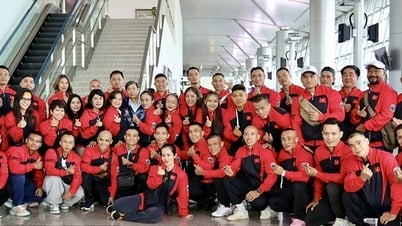

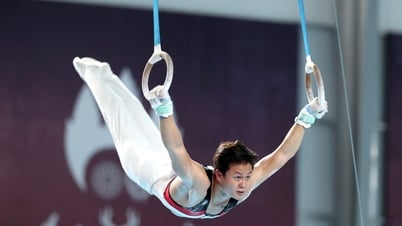
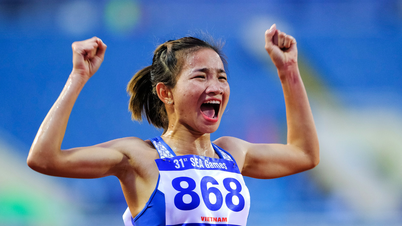
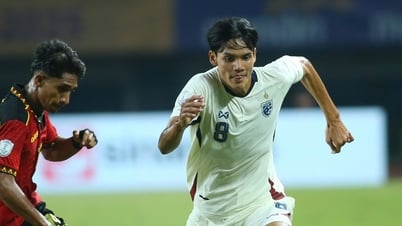





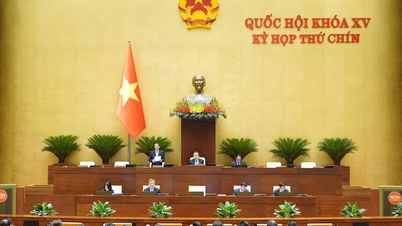

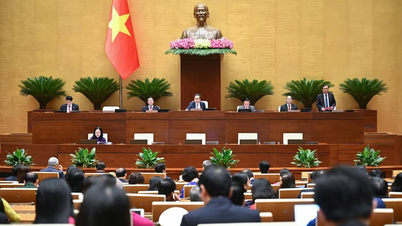
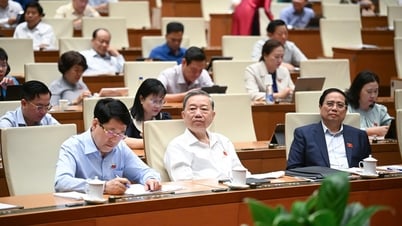





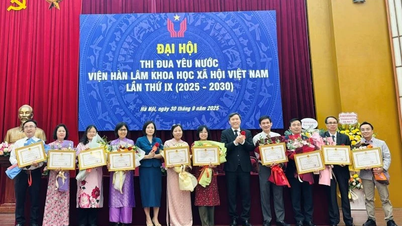
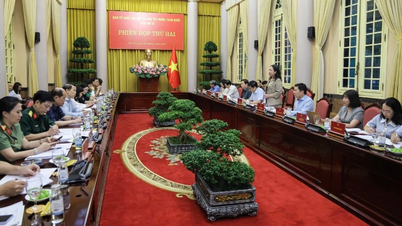
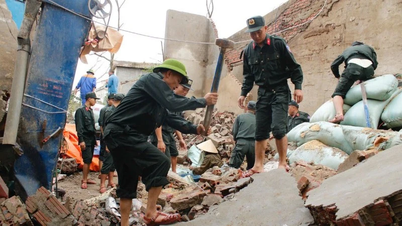
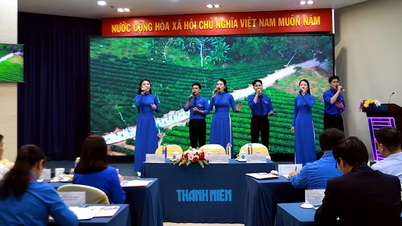


































































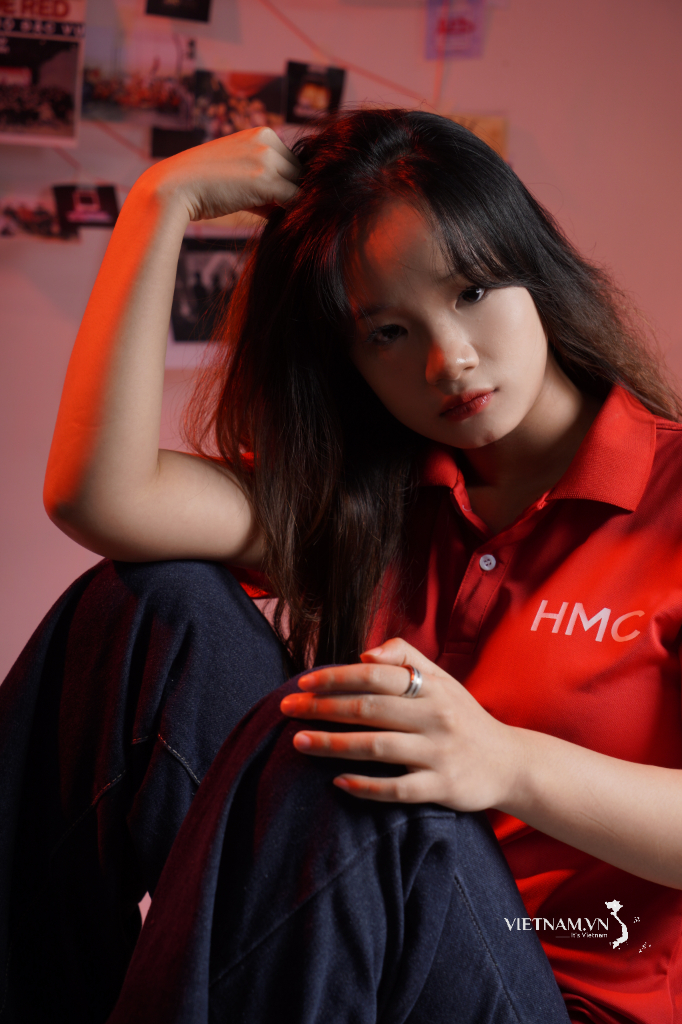
Comment (0)